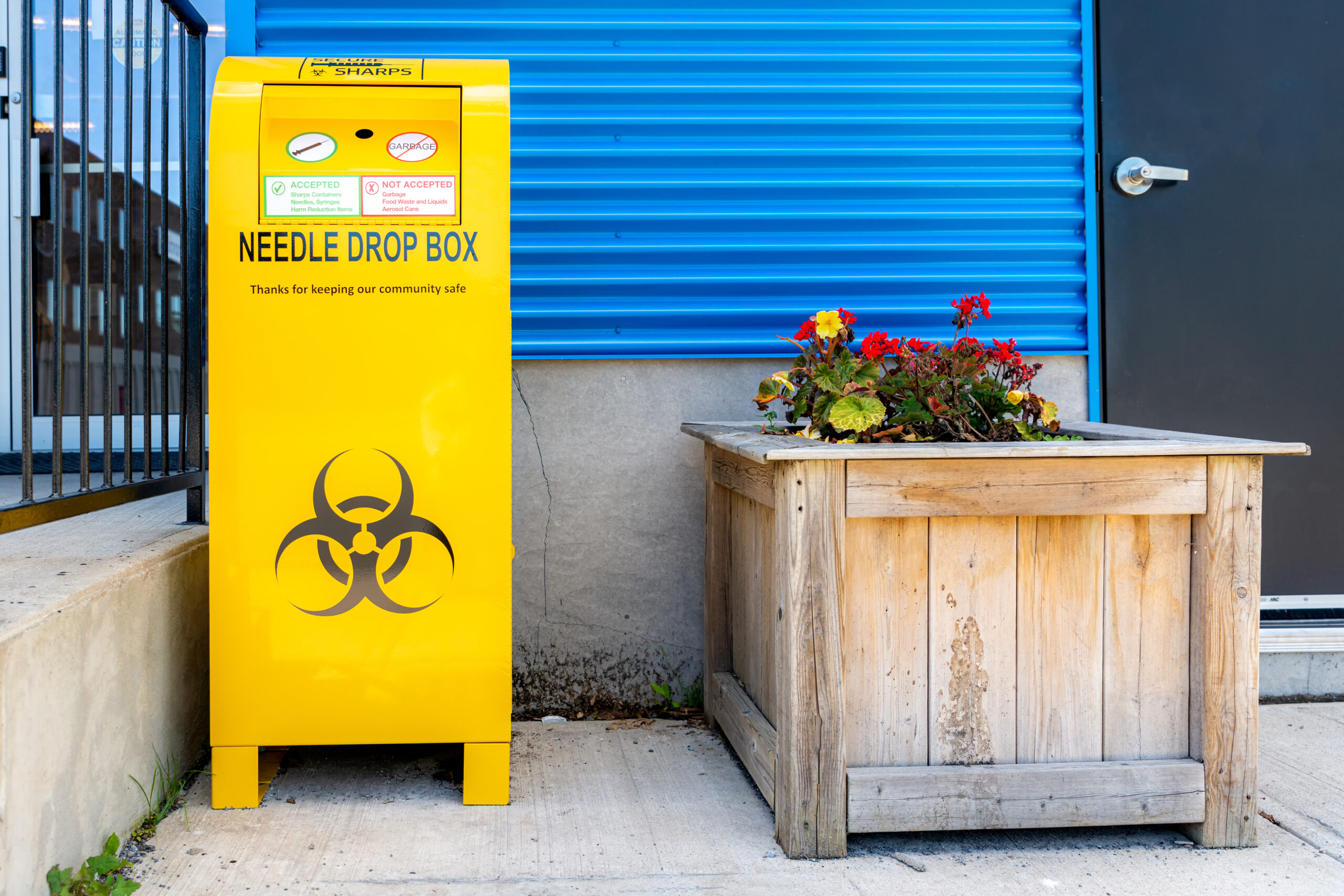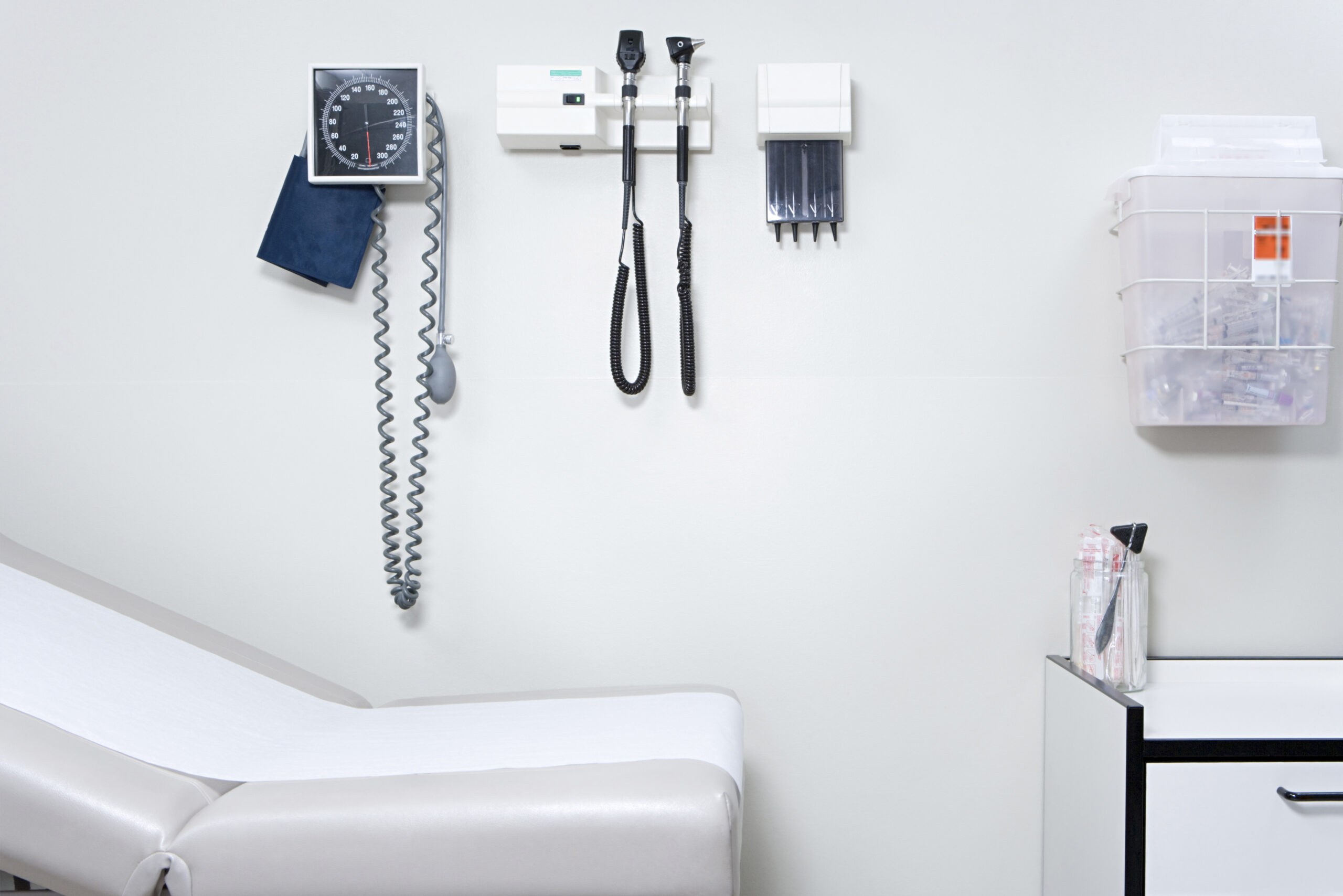Dr. Mohammad Karamouzian spoke with the Toronto Star about crime rates surrounding supervised consumpton sites in Toronto. The study found that the sites have not led to a sustained increase in crime in the areas where they reside. In fact, in most cases, crime rates remained stable or even declined in the neighbourhoods they opened.
Author: Samira Prasad
Upstream Lab scientists Drs. Archna Gupta & Saadia Sediqzadah awarded PSI Fellowships
Fellowships will support Dr. Gupta’s research into access to primary care and Dr. Sediqzadah’s research into youth with early phase psychosis
Dr. Archna Gupta and Dr. Saadia Sediqzadah, scientists at Upstream Lab (part of MAP Centre for Urban Health Solutions, St. Michael’s Hospital, Unity Health Toronto), have both been awarded 2026 PSI Graham Farquharson Knowledge Translation Fellowships.
The PSI Graham Farquharson Knowledge Translation Fellowship – valued at $300,000 per scientist for over two or three years – helps protect a promising new clinician-investigator’s research time, allowing the Fellow to undertake high-impact translational research in Ontario.
Knowledge translation research aims at transitioning research discoveries to the real world to improve health outcomes.
Dr. Gupta, a family physician and family medicine obstetrics provider at St. Michael’s Hospital, will use her fellowship for research into access to primary care in Ontario, at a key moment of transformation in the province’s health system.
“Ontario’s primary care system is facing major challenges, with many people struggling to find a family doctor or primary care clinician and access the care they need. The new Primary Care Act (2025) offers a unique opportunity to make meaningful improvements, setting out six patient-centred goals to increase access and strengthen care for all Ontarians. My research and knowledge translation activities are focused on helping Ontario’s primary care system evolve to meet these important targets,” says Dr. Gupta.
“This is a critical moment for health care in our province — a chance to make lasting, positive changes that will benefit every community. My research will play a key role in making care more equitable and accessible, informing policies and tools that support patients and health professionals alike. Ultimately, this research will help support a stronger, fairer primary care system — so that every Ontarian can get the care they need, when and where they need it most.”
Learn more about Dr. Gupta’s research into research into access to primary care:
- Understanding the relationship between the distance between patients and primary care providers and quality of care
- Primary Care Supply and Demand in Ontario
Dr. Sediqzadah, a psychiatrist at St. Michael’s Hospital, will use her fellowship for research to improve the mental and physical health outcomes for youth with early phase psychosis in Ontario. Her goals include developing the first patient decision aid for early phase psychosis that will be co-designed by people with lived experience (PWLE), their families/caregivers and healthcare providers.
“According to the Ontario Early Psychosis Intervention Program Standards, early phase psychosis (EPP) is defined as experiencing symptoms of a psychotic disorder between the ages of 14 and 35, who are either untreated or receiving treatment for 6 months or less. EPP can be a confusing time for a young person. The hallmark feature of psychosis is the difficulty in telling what is real and what is not. This often-persistent lack of insight has treatment implications for both the patient and their healthcare providers,” says Dr. Sediqzadah.
“Medication acceptance and adherence can be a challenge. The mainstay of treatment of psychotic illness includes antipsychotics. While effective, they carry a significant burden of metabolic syndrome, including weight gain and increased risk of diabetes. Concerns about the side effects, how long one must be on medication, or even simply accepting one has a mental illness that requires medication in the first place, can be common concerns and barriers to treatment. We lack tools to address these issues that are tailored to both prescribers and patients, especially those that include people with lived experience in the development process. As such, my proposed research will employ knowledge translation approaches to guide both patients and prescribers on psychosis treatment, as well as the prevention/management of metabolic side effects of antipsychotics.”
Learn more about Dr. Sediqzadah’s research into youth with early phase psychosis:
- Reasons for Hope: “When can I stop taking it?”: Early phase psychosis patient decision aid co-designed by patients, families and providers
- Metformin, Antipsychotics and Psychotic Disorders: Challenges and Opportunities in Family Medicine and Psychiatry
For more information or to request an interview with Dr. Gupta or Dr. Sediqzadah, please contact: upstreamlab.comms@unityhealth.to
Alberta syphilis cases fell after rapid testing rollout, study co-led by St. Michael’s finds
Dr. Sean B. Rourke, a scientist with MAP Centre for Urban Health Solutions (left) and Dr. Ameeta Singh, an infectious disease specialist at the University of Alberta (right)
A new study suggests that syphilis cases in Alberta dropped sharply following the expansion of rapid testing and same-day treatment, reversing years of steep increases and growing concerns about congenital transmission.
The study, co-led by researchers with MAP at St. Michael’s Hospital, University of Alberta, and Indigenous Services Canada, was conducted as Alberta declared a syphilis outbreak in July 2019 after cases surged among key populations, especially Indigenous communities.
In Alberta, the scale of the crisis was stark: reported syphilis cases jumped from 161 in 2014 to 2,330 in 2019. Between 2015 and March 2024, there were 350 cases of congenital syphilis – where syphilis is passed from mother to child – resulting in 61 stillbirths.
To help reduce transmission, Dr. Ameeta Singh, an infectious disease specialist at the University of Alberta, and her team introduced rapid, point-of-care syphilis testing. This approach allows people to be tested and treated in a single visit, often in community-based or non-traditional settings. A key factor in its success was the use of mobile health teams who reached individuals with limited access to care, providing testing and connecting them to treatment in culturally safe ways.
The province first implemented the rapid point-of-care testing program in Edmonton in August 2020 and expanded across Alberta in March 2022. Researchers used interrupted time-series analyses to evaluate how the rollout affected new syphilis positivity rates, comparing trends before and after the intervention to measure its impact. After the Edmonton rollout, monthly rates dropped by 15 percent, and once the program expanded across Alberta, the decline deepened to 25 percent, the study found.
“Rapid testing didn’t just slow the outbreak, it bent the curve and now the number of new infections is declining,” said Dr. Ameeta Singh, an infectious disease specialist at the University of Alberta. “Expanding these tests, in addition to offering treatment and care, has helped us reach people in remote or underserved communities who are too often missed by traditional healthcare systems.”
Overall, the findings show that introducing rapid syphilis testing was associated with a meaningful reduction in new infections in a high-income setting facing renewed heterosexual transmission and persistent barriers to testing and timely treatment.
“Infectious syphilis is a public health emergency in Canada, hitting communities in Alberta, Saskatchewan and Manitoba the hardest,” said Dr. Sean Rourke, director of REACH Nexus at the MAP Centre for Urban Health Solutions at St. Michael’s Hospital (Unity Health Toronto). “This data show that we can make a real-world impact by reaching more people to test, diagnose, and create crucial linkages to care to help end this health crisis.”
“Our work highlights the importance of having the right healthcare teams in place to engage and support people who face barriers to care, including stigma, discrimination, and racism,” he said.
This study, along with several others, helped contribute to Health Canada’s approval of a dual HIV/Syphilis in 2024 and standalone syphilis test in 2025.
Health officials say the findings highlight the need for accessible, low-barrier testing, as key populations across Canada—particularly Indigenous and remote communities—continue to face disproportionately high rates of syphilis and other sexually transmitted and blood-borne infections.
“Rapid syphilis testing is an important part of delivering culturally safe, trauma-informed care for First Nations, Inuit, and Métis communities,” said Dr. Tom Wong, Chief Medical Officer of Public Health at Indigenous Services Canada. We will continue working closely with partners and community leaders to strengthen community-led solutions and create spaces that support healing and well-being.”
By Andrew Russell for Unity Health Toronto
These new, potent drugs in Toronto are throwing overdose responses for a loop
MAP scientist Dr. Ahmed Bayoumi and Hayley Thompson, managing director of MAP’s Ontario Drug Checking Community, provide expert insight into the emergence of increasingly potent substances in Toronto and the challenges they pose for overdose prevention and response efforts.
Putting Housing First with Dr. Stephen Hwang, George Da Silva and Kefa Omori Mogoncho
What does the Housing First program reveal about ending homelessness in Canada— and what challenges remain? In this podcast, MAP scientist and director Dr. Stephen Hwang joins a panel of experts to explore how the Housing First program fits into the bigger picture, why long-term stability goes beyond shelter and what comprehensive supports are needed to address the root causes of homelessness.
New survey reveals access to primary care growing, but 5.9 million adults in Canada still lack regular doctor
Press release by the Canadian Medical Association
Access to primary care in Canada is slowly improving, but survey data shows that nearly 6 million adults across the country still lack access to a regular family doctor, nurse practitioner, or primary care team – down from 6.5 million since 2022.
Survey data also reveals concerning gaps in access to care that vary substantially across demographic groups, and people without a regular clinician reported discrimination when trying to access primary care.
The OurCare Survey 2025, led by St. Michael’s Hospital in partnership with the Canadian Medical Association (CMA), is published online today. The survey provides a clear picture of how Canadians’ experiences with primary care compare to the OurCare Standard — a framework of six essential elements that define what every person should expect from the primary care system. The OurCare Standard was developed in consultation with 1000s of patients and members of the public.
The survey shows that 83.5% of women have a regular clinician, compared to just 79.4% of men and only 72.7% of those identifying as another gender. Other results show that 84.9% of people earning $200,000 or more annually reported having a regular clinician compared to 69.6% of those earning less than $20,000.
People with a family doctor or nurse practitioner reported challenges accessing care. Only 37% said they could be seen the same or next day when they had an urgent concern.
“People in Canada believe everyone in this country should have access to high-quality primary care regardless of their background and where they live,” said Dr. Tara Kiran, lead investigator and scientist at St. Michael’s Hospital. “Results from our survey show we are making progress towards this goal but that we still have a far way to go. I hope results from our survey motivate governments across the country to redouble their efforts to improve access to care and for people in this country to demand better.”
The survey also reports data on access to health records, cultural safety and community accountability — elements of care that people said were important to them but are often overlooked in health system reporting. Strikingly, only 27.8% of respondents reported they were satisfied or very satisfied with how the primary care system in Canada is working.
“These findings confirm what physicians and patients across Canada are experiencing daily. While we’ve made progress, too many Canadians still face unacceptable barriers to primary care,” said Dr. Margot Burnell, CMA President. “We can do better. We know the solutions. Access to care for all Canadians is a realistic and achievable goal now. ”
Key findings from the OurCare Survey 2025 are summarized in the report “Is Canada’s Primary Care System Measuring Up? Results from the 2025 OurCare National Survey” published at OurCare.ca.
More Canadians have a family doctor, but ‘concerning gaps’ found
Dr. Tara Kiran, lead of the OurCare project, spoke to CBC about the finding’s from her latest survey that found that 5.9 million people in Canada still lack a family doctor.
“That’s still a big number, but it is a big improvement at a time when we’ve actually had some population growth,” said Dr. Kiran.
These current numbers are down from 6.5 million in 2022, a number found through the initial OurCare survey.
Nearly six million Canadians remain without a family doctor, new report finds, revealing gaps in primary care
The results of the latest OurCare Survey found that an estimated 5.9 million people in Canada are still without access to primary care.
“Access to care overall has improved in some ways,” Dr. Tara Kiran, MAP scientist and project, told the Toronto Star. “But at the same time, 5.9 million people is a lot of people without primary care. Although that number has improved, we still have a ways to go.”
More Canadians have primary care now compared with three years ago, study finds
Dr. Tara Kiran spoke with The Globe and Mail about the findings of the 2025 OurCare survey, which shows that despite there still being gaps in care, more people in Canada have access to primary care than in 2022 when the initial survey took place.
Ontario’s Drug Checking Community receives Health Canada funding for expansion
Ontario’s Drug Checking Community has received further support from Health Canada’s Substance Use and Addictions Program to extend and expand their public health services and safety program.
This will involve scaling the offsite drug checking model designed and in use by Toronto’s Drug Checking Service since 2019 to other jurisdictions in the province. The primary reason for doing so is to inform evidence-based responses to the worsening toxic drug supply crisis by educating people who use drugs, community health workers, public health units, clinicians, first responders, policy makers, coroners and toxicology laboratories, and others about what’s circulating in the unregulated drug supply and anticipated harms.
The goal by December 2027 is to establish a collection site at a community agency in each of Ontario’s public health unit jurisdictions, for access to the most accurate and timely information on their local unregulated drug supply.
Operated from within MAP Centre for Urban Health Solutions at St. Michael’s Hospital in Toronto, Ontario’s Drug Checking Community is a national leader in drug checking service delivery and community-led unregulated drug market monitoring and education. We are beyond grateful to continue to serve the community of people who use drugs and inform responses to the toxic drug supply crisis. Thank you to people who use drugs for donating their samples, our members for collecting and analyzing samples, our funders, and our supporters for your ongoing advocacy and use of our program’s findings.










